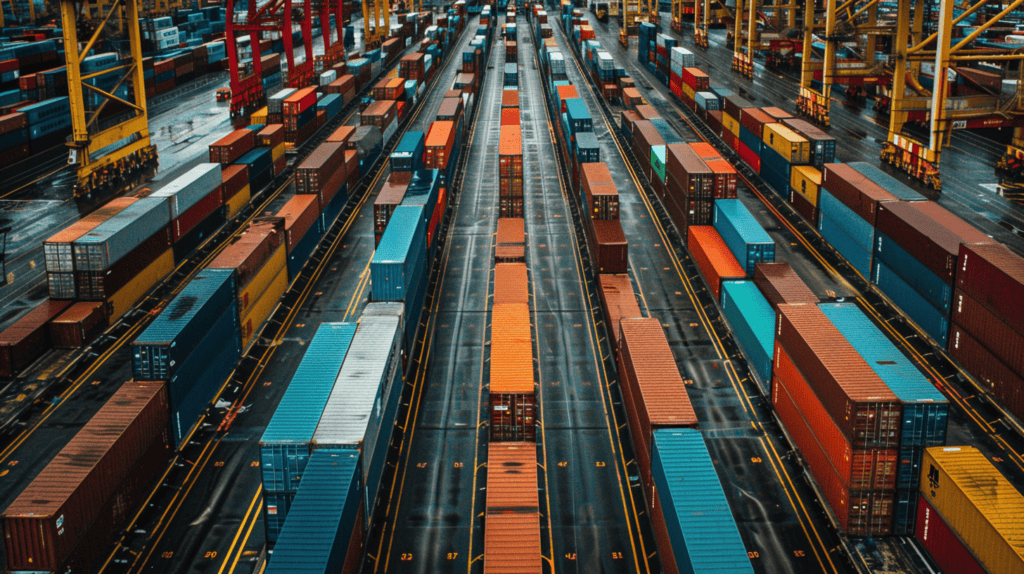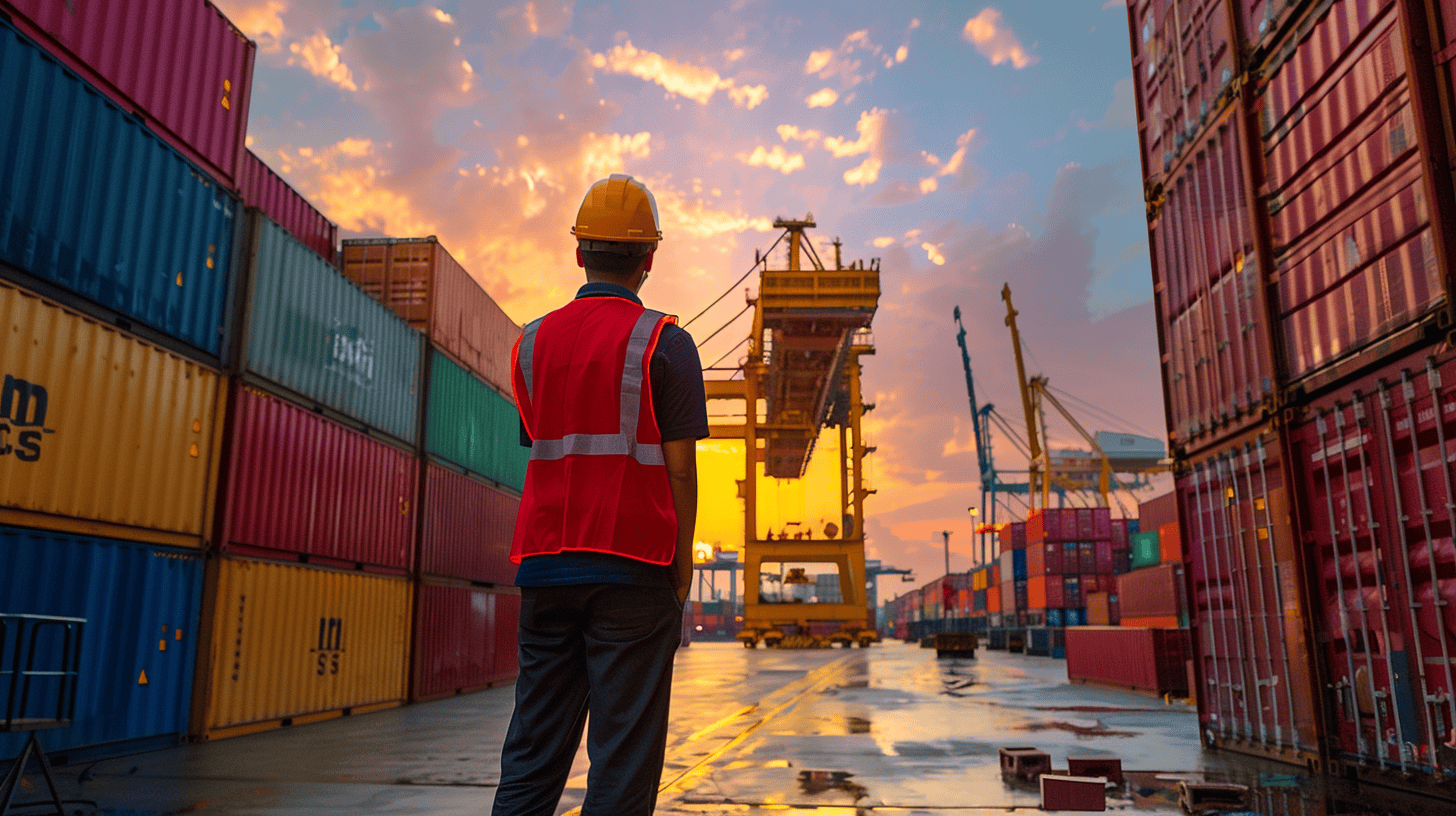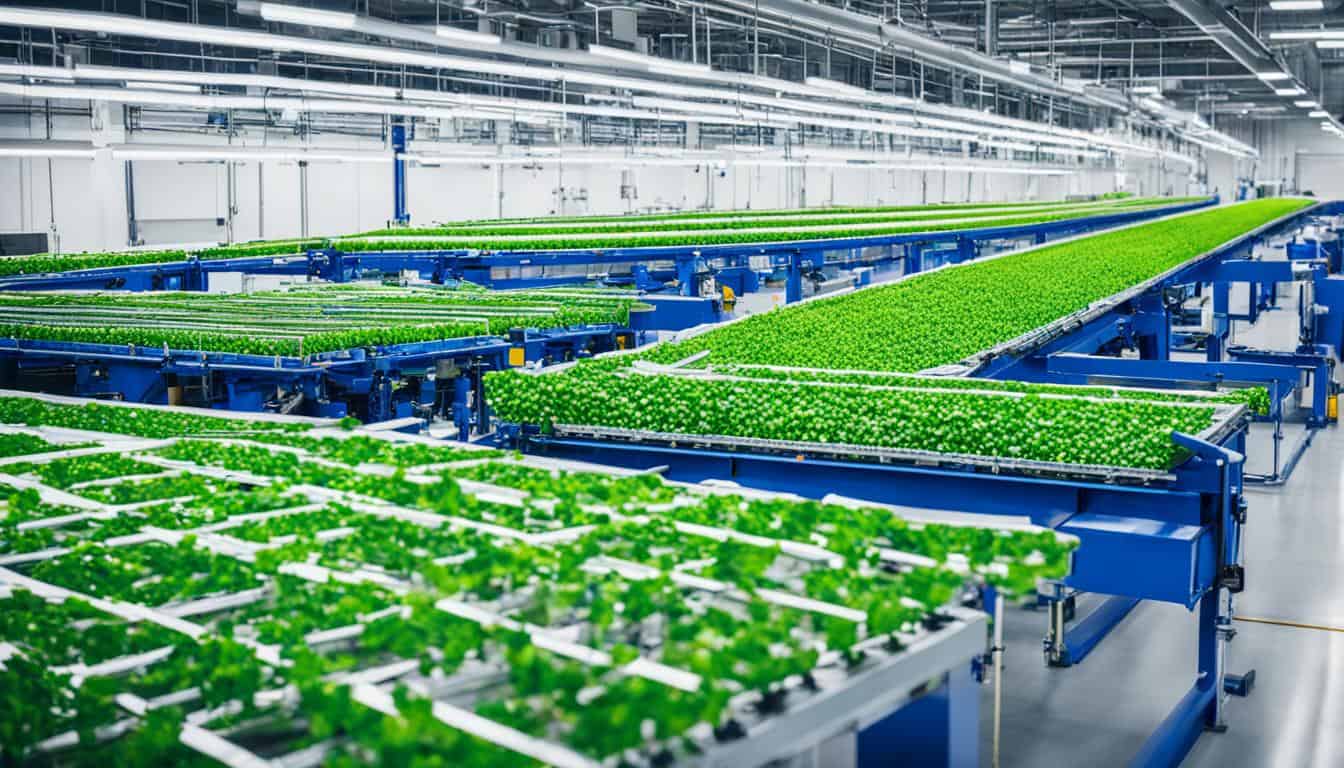As we delve deeper into the era of sustainability, it’s clear that the term doesn’t just encapsulate environmental concerns. True sustainability reaches beyond, covering environmental, economic, and social pillars.
Among these, social sustainability is crucial for businesses aiming to enhance their brand while avoiding reputation damage. Businesses have lately been confronted with an increasing slew of regulatory frameworks designed to protect both community and individual well-being from harmful and unethical corporate activities.
Now, more than ever, due diligence in the realm of human rights (HRDD) is becoming a key consideration. This factor significantly influences global supply chains, particularly within the manufacturing sector, shaping the nature of work, the level of workers’ conditions, and the practices we consider ethical.
When we discuss sustainable supply chains labor rights, we’re talking about transparency, accountability, and the multifaceted journey towards overall sustainability, with every cog in the supply chain management wheel playing its essential role.
Key Takeaways
- Sustainability extends beyond environmental concerns to include economic and social pillars.
- Businesses face increasing regulatory frameworks aimed at protecting community and individual wellbeing.
- Sustainable supply chains labor rights encompass transparency, accountability, and due diligence in human rights (HRDD).
- HRDD is instrumental in influencing value chains, especially within the manufacturing sector.
- A company’s commitment to social sustainability can greatly enhance its brand and help circumvent reputation damage.
- Every participant in the supply chain management process plays a role in the journey towards overall sustainability.
Understanding Social Sustainability in Supply Chain Management
As global commerce interconnects industries and markets, the scope for implementing social sustainability within supply chain management expands. This key component of corporate sustainability strategies involves the application of ethical practices and due diligence to mitigate adverse human rights impacts and uphold brand integrity.
The Role of Human Rights Due Diligence
At the heart of social sustainability lies Human Rights Due Diligence (HRDD), a risk-based approach underpinned by guidelines set forth by the United Nations (UN) and the Organization for Economic Cooperation and Development (OECD). The premise of HRDD is straightforward: safeguard human rights by proactively identifying and managing potential areas of non-compliance within the supply chain.
Regulations Impacting Supply Chain Equity
Various regulations, domestic and international, influence supply chain equity. These legal frameworks, the supplier code of conduct, and the enforcement of human rights compliance collectively play a critical role in pushing businesses toward more ethical operations. Nevertheless, these regulations also delineate the boundaries within which stakeholder expectations are met, ensuring a level playing field for all parties involved.
Building Brand Integrity Through Ethical Practices
An authentic expression of brand integrity is reflected in a company’s commitment to uphold ethical practices within its supply chain. This comprises not merely adhering to laws and regulations but also embodying a culture that exceeds compliance norms to uphold human rights, promote fair economic opportunities, and mitigate risks associated with environmental degradation.
| Components of Social Sustainability | Description |
|---|---|
| Human Rights Due Diligence | Proactive management of adverse human rights impacts within business operations, underpinned by guidelines from the UN and OECD |
| Regulatory Compliance | Adherence to domestic and international laws governing supply chain operations to ensure balanced competition and equity |
| Brand Integrity | A commitment to ethical business practices beyond mere compliance, is reflected in the company’s treatment of employees, suppliers, and surrounding communities |
International Standards Shaping Sustainable Supply Chains Labor Rights
International standards undoubtedly play a crucial role in framing sustainable supply chain labor rights. The values entrenched in such standards mold the foundations of corporate policies and practices concerning labor rights and social sustainability. At a foundational level, it provides an established benchmark that guides corporations on the legitimacy of their business practices.
Key frameworks have risen to prominence, including the UN Guiding Principles on Business and Human Rights, the OECD Guidelines for Multinational Enterprises, the International Labour Organisation’s fundamental principles, and the revered International Bill of Human Rights. These frameworks are instrumental in setting global precedents and serve as guiding posts for businesses in their quest for social sustainability.
These pinnacles of international standards not only prevent human rights violations but establish benchmarks for fair labor conditions, respectable wages, and safe working environments. By adhering to these standards, businesses lay the groundwork for achieving holistic sustainable advancement, thereby aligning themselves to meet social sustainability goals.
A commitment towards adhering to these international standards goes beyond corporate social responsibility—it ties directly into businesses’ strategies, brand reputation, and overall success in the global market.
Indeed, businesses that demonstrate respect for labor rights find themselves in a stronger position to mitigate potential risks, build more robust and resilient supply chains, and garner trust among stakeholders.
- Understand and integrate international standards into corporate culture and business strategies
- Respect labor rights and improve labor conditions in supply chains
- Engage with stakeholders to manage potential risks and improve transparency
- Commit to continuous improvement in line with evolving international standards
In conclusion, a business’s commitment to sustainable supply chains labor rights is not a temporary shift—it’s a fundamental transformation that shapes its operations, strategies, and core values. By earnestly adopting these not-so-subtle shifts in practices, businesses can successfully navigate the challenges of labor rights regulations, reduce potential enormous legal problems or reputational risks, and emerge as a beacon of social sustainability in today’s volatile corporate landscape.
Comprehensive Approaches to Protecting Worker Welfare
In today’s interconnected business landscape, the welfare of workers across global supply chains is closely linked to multinational enterprises’ commitment to labor rights and ethical supply chain management. Companies are being held accountable for their actions, not just within the confines of their operations, but spanning their entire supply chain. This alignment to a deeper commitment to sustainability has been gaining increased recognition both locally and globally.

Global Supply Chains and Labor Rights
As companies grapple with managing a vast and highly diversified network of producers and suppliers, the importance of sustainability initiatives is becoming ever more apparent. The complexity brought on by having operations in different parts of the globe calls for constant vigilance and a strong commitment to adhere to international labor rights, trade agreements, and responsible sourcing standards.
From Compliance to Advocacy: Evolving Business Roles
There’s a clear evolution from being merely compliant to becoming advocates for worker welfare. From ensuring their compliance with critical labor rights to advocating for best practices, the role of multinational enterprises in promoting responsible business conduct is continually expanding. By fostering transparency and collaboration in their operations, these companies are paving the path toward high sustainability standards that resonate across global supply chains.
Challenges of Enforcing Labor Standards Across Borders

In the quest for sustainability and worker protection, companies face a myriad of ethical challenges. Perhaps the most towering of these is the enforcement of labor standards by multinational enterprises across different legal jurisdictions.
Managing supply chains that span multiple borders means juggling diverse regulatory landscapes, each with its unique set of labor laws and practices. From regional disparities to international accords, the complexity can be overwhelming. Complicating matters further is the intricate web of subcontracting. Indeed, the labor involved in creating a single product might extend to several countries, each with its interpretation and implementation of labor standards.
Yet, it is essential for businesses to navigate these complexities. After all, respecting and safeguarding worker rights is more than a legal obligation — it’s a moral responsibility and a pillar of sustainable and ethical supply chain management. And let’s not forget the damage that labor rights violations can inflict on a company’s reputation, ultimately denting its bottom line.
| Challenge | Effect | Strategy |
|---|---|---|
| Diverse Regulatory Landscapes | Difficulty in understanding and complying with various international labor standards. | Allocate resources to get familiar with different regional labor laws and compliance requirements. |
| Cross-Border Enforcement | Challenges in enforcing labor standards due to scattered jurisdictions. | Establish strong international compliance procedures with regards to labor rights. |
| Complex Supply Chains | Managing labor rights among various parts and subcontracting components of the supply chain increases complexity. | Invest in due diligence and transparency measures for efficient supply chain management. |
Transnational collaboration is arguably the silver bullet in this scenario. The end goal is a shared commitment to upholding labor standards, irrespective of geographic boundaries or variations in national labor laws. Businesses, governments, unions, and civil society must work together, combining their resources and influence to drive change from within.
“Only when we’ve addressed these challenges in enforcing labor standards across borders, can we start talking about truly sustainable and ethical supply chains.”
The task is colossal, but the stakes are too high to be ignored. At the forefront of this battle lies Human rights due diligence, a versatile tool that can help companies navigate the tricky terrain of cross-border labor enforcement. By identifying, preventing, and mitigating adverse impacts on labor rights, human rights due diligence can chart the course toward effective worker protection.
The Impact of Transparency and Accountability on Workers’ Rights
In today’s complex and globally connected marketplace, transparency and accountability have taken center stage, especially concerning worker rights and ethical business conduct. These principles are now considered cornerstones of truly sustainable and ethical supply chain management.

Evaluating the Effectiveness of Supply Chain Audits
Supply chain audits serve not just as a compliance checkpoint but also as a catalyst for significant improvements. They offer insights into potential labor rights violations and advise on procedural enhancements upholding due diligence.
Through comprehensive supply chain audits, businesses have the opportunity to reassess and modify their practices to align better with international labor standards. When done right, these audits can enhance responsible business conduct and uplift social sustainability.
Tracing the Source: The Drive for Transparent Procurement
As ethical sourcing becomes a determinant of a firm’s success, the push for transparent procurement has gained considerable momentum. To instill integrity into the supply chain, companies are now focusing on end-to-end traceability.
Transparent procurement exposes the realities of sourcing and deters exploitative labor practices. It allows businesses to identify, address, and rectify irregularities and promotes respect for human rights. This pursuit of transparency further underlines the company’s commitment to creating a more ethically responsible business model.
Amid the industry’s quest for improved transparency and accountability, some remarkable best practices have emerged:
- Active participation in fair-trade initiatives: By participating in fair trade, businesses can ensure that their goods are ethically sourced, thereby promoting transparency in their procurement process.
- Robust internal and external auditing: Regular checks must be performed to ensure compliance with international labor standards and to prevent labor rights violations.
- Stakeholder collaboration for collective responsibility: Engagement with stakeholders, including but not limited to employees, customers, shareholders, and regulators, is crucial in ensuring a transparent and accountable supply chain.
From audits to adopting transparent procurement methods, businesses are going the extra mile to ensure they conduct their operations ethically. The drive towards heightened transparency and accountability is a testament to the growing promise of a more sustainable and socially responsible future.
Diversity, Equity, and Inclusion: Cornerstones of Labor Rights in Supply Chains
When discussing diversity, equity, and inclusion, one may quickly think of them as concepts relevant to corporate offices. However, these values extend beyond that scope, permeating every layer of an organization, especially the supply chains. In the realm of supply chains, these principles are champions of labor rights, serving as meaningful conduits for workers’ dignity. Recognizing all forms of diversity can significantly enrich work culture, promoting a respectful and liberating atmosphere in workplaces.
Companies that embody equity and inclusion in their ethos foster an environment where every individual, irrespective of their background, feels valued and respected. In essence, the active promotion of these cornerstone values works to actualize labor rights within the supply chain landscape.

Policies and Initiatives Promoting Workers’ Dignity
In their pursuit of ethically robust supply chains, businesses must adopt and implement policies augmenting workers’ dignity and equity. Frameworks tailored by thought leaders like the Organisation for Economic Co-operation and Development (OECD) and the United Nations play a central role in guiding these reforms. Such practices validate the worth of diversity and inclusion, bring attention to inequalities, and provide a path for creating solutions.
Remember, these policies are not simply one-off initiatives. They demand ongoing commitment and unwavering determination to offer every worker a dignified and respectful workplace, irrespective of their role or location in the chain, from corporate offices to production lines.
Creating an Environment of Respect and Freedom in Workplaces
The active promotion of workers’ dignity and freedom in workplaces truly encapsulates inclusion. When workers are appreciated for their unique ideas and perspectives, companies not only build a diverse team but also construct a vibrant, inclusive environment. This allows for innovative ideas to flourish, improving business conduct progressively.
By fostering environments of respect and freedom, businesses champion human rights initiatives, strengthen corporate responsibility, and achieve social sustainability goals. This harmonious concurrence of strategies skyrockets firms towards greater heights in their sustainable development journey.
In summary, the values of diversity, equity, and inclusion significantly influence labor rights within supply chains. By championing these golden principles, businesses can ensure a respectful and liberating working atmosphere, enhancing their corporate responsibility, and contributing to their broader goals of social sustainability.
Best Practices for Implementing Sustainable Business Models
In the realm of modern enterprise, sustainable business models are no longer an ideology, but a reality. Defined by best practices, these models effectively blend corporate sustainability goals unfailingly with labor rights. The incorporation of ethical procurement and production methods into day-to-day operations becomes an essential practice that pushes the envelope further toward achieving comprehensive supply chain management.

Aligning Corporate Sustainability Goals With Labor Rights
With the aim of fostering an equitable and prosperous global supply chain, companies are putting their best foot forward to intertwine their sustainability goals with labor rights. With labor rights compliance at the helm, this process equally empathizes on practices that ensure worker welfare and the mitigation of environmental impact. The process emphasizes the necessity of responsible business practices that actively promote worker well-being while minimizing harm to the environment.
Adopting Ethical Procurement and Production Methods
Adopting ethical procurement and production methods is a stepping stone towards building sustainable business models. This journey is completed by the introduction and maintenance of practices that champion environmental sustainability. With such diversities in play, the challenge lies in balancing all these different elements to make the model work.
| Practices | Benefits |
|---|---|
| Labor rights compliance | Ensures equitable business operations |
| Worker welfare practices | Boosts morale and productivity |
| Environmental sustainability practices | Reduces environmental footprint |
| Ethical procurement | Promotes fair trade and responsible sourcing |
Implementing sustainable business models is not just about adhering to industry standards and benchmarks. It is about creating a reality where the welfare of workers, the environment, and the bottom line coexist to create a holistic model where everyone wins. A realm wherein labor rights, corporate sustainability goals, and environmental sustainability form the pillars of an equitable, forward-moving enterprise.
Leveraging Partnerships for Enhanced Labor Rights Protection
In today’s progressively interconnected world, charting a course toward enhanced labor rights protection necessitates a strategic and collaborative approach. Leaning into partnerships provides an avenue not only to undertake human rights due diligence but also to promote a robust commitment to improved worker welfare across the entire supply chain.
Strengthening Supplier Engagement in Human Rights Due Diligence
Strengthening supplier engagement in human rights due diligence is one critical aspect of fostering robust partnerships. By closely working with suppliers, companies can ensure that labor rights protection is not merely a tick-box exercise but a core component of their business model. Emphasizing a detailed risk management strategy allows companies to proactively identify potential areas of concern and collaboratively work toward their resolution. This, in turn, contributes to fostering corporate responsibility and a larger culture of respect and accountability within the industry.
Collaborative Initiatives Towards Safer Working Conditions
Simultaneously, collaborative initiatives play a vital role in galvanizing a collective commitment towards safer working conditions. These concentrated efforts serve as a beacon, signifying the importance of industry alliances and stakeholder dialogue. Joint efforts can tangibly demonstrate the benefits of leveraging collective capabilities and resources to improve the livelihoods of workers. By encouraging such industry alliances, stakeholders can ensure that their collective voice is geared towards shaping an environment where the well-being of workers is at the forefront.
Building effective partnerships, encouraging supplier engagement, and fostering collaborative initiatives ensure a firm footing in the journey towards enhanced labor rights protection. As industry leaders, it is on us to set the benchmark and lead the charge in this pivotal aspect of sustainability.
Risk Management: Anticipating and Addressing Human Rights Violations in Supply Chains
In the constant swing of global markets, and particularly in the context of the worldwide impact of pandemics such as COVID-19, global supply chains face a myriad of risks. These risks range from operational to reputational, and increasingly, the spotlight has been trained on how businesses are managing potential human rights violations within their supply chains. Risk management in this sphere has thus become crucial, and companies must adapt to survive and prosper.
Risks in the Context of Global Markets and Pandemics
The interlinked nature of global markets means that risks can ripple outwards, impacting far-flung supply chains. This has been particularly noticeable during the global pandemics, where lockdowns and restrictions have dramatically impacted the ability of businesses to operate as usual. Proactive measures are needed, factoring in potential human rights violations, whether they be issues of labor exploitation, dangerous working conditions, or lack of response to worker grievances.
Frameworks for Mitigating Adverse Rights Impacts
Key to mitigating these risks is the implementation of due diligence frameworks. These frameworks follow a structured approach to the identification, prevention, and mitigation of adverse human rights impacts in supply chains. The UN Guiding Principles on Business and Human Rights provide a proper starter frame for businesses, urging them to ‘Know, Show and Fix.’
| Know | Show | Fix |
|---|---|---|
| Identify and assess potential human rights impacts | Communicate how impacts are addressed | Remedy any adverse human rights impacts |
It is evident from this that when it comes to risk management surrounding human rights violations, proactive measures are necessary. It’s not about reacting to crises as they arise but about predictive tactics, robust corporate governance, and planning for potential risks.
Businesses need to stay ready to ensure that their supply chains can respond promptly, preserving their integrity even in times of uncertainty. The responsibility of managing human rights in supply chains is an effort that cannot beside stepped. Businesses must shoulder this as part of their role in society and, in the process, ensure a more sustainable, resilient, and equitable future for us all.
Conclusion on Sustainable Supply Chains Labor Rights
In our journey towards sustainable supply chains and the safeguarding of labor rights, we must acknowledge that these cornerstones are not only intertwined but are integral pillars of any reputedly responsible company. The incorporeal bond that exists between upholding labor rights and establishing an ethical supply chain is a directive that transcends moral responsibility and positions itself as a key strategic business move.
Human rights due diligence and ethical supply chain management, therefore, are not what we may refer to as mere compliance tools, but powerful engines that drive the very structure of international labor norms within an organization. This commitment and drive towards maintaining worker dignity translate into a powerful corporate culture – one that revives worker protection and empowerment as part of its ethos.
We need to utilize the need for transparency and action as a sharp instrument to chisel the path towards better business practices that only strengthen our position as advocates of social sustainability and responsible business conduct. I firmly believe that utilizing this conversation as an opportunity will create a future trajectory that shapes a more equitable, inclusive, and sustainably successful future for global trade.
FAQ on Business and Human Rights
Q: What are the key principles on business and human rights to be considered for responsible supply chains?
A: The United Nations Guiding Principles on Business and Human Rights (UNGPs) are the key principles to be considered for responsible supply chains. These principles outline that all businesses have a responsibility to respect human rights, which includes preventing and mitigating human rights risks, such as child labor and forced labor, in their operations and supply chains. It also means addressing any adverse human rights and environmental impacts in the company’s supply chain practices.
Q: How can a company perform supply chain due diligence to ensure it meets the principles on business and human rights?
A: A company needs to map out many supply chains and scrutinize them for potential human rights issues. It should consider risks such as child labor, forced labor, health and safety issues, and modern slavery. This requires a thorough assessment of the social and environmental impacts throughout the supply chain. The information obtained should then be used to develop action plans to mitigate identified risks.
Q: How can respect for human rights be ensured in regard to child labor and modern slavery within supply chains?
A: By implementing responsible supply chain practices such as regular audits, rigorous supplier codes of conduct, and worker grievance mechanisms, a business can better detect and address instances of child labor and modern slavery. Strong commitment to the United Nations Guiding Principles on business and human rights is also important for a business to ensure respect for human rights.
Q: What should businesses have planned for 2023 concerning sustainable supply chains labor rights?
A: By 2023, businesses should have comprehensive due diligence systems in place that identify, prevent and mitigate human rights risks in their supply chain. These systems should be in line with the United Nations Guiding Principles on business and human rights as well as other guidelines such as the Modern Slavery Act.
Q: How can decent work in global supply chains be promoted?
A: Decent work in global supply chains can be promoted by ensuring fair wages, decent working hours, occupational health and safety standards, and by providing social protection for families. It also involves eliminating forced labor, modern slavery, and child labor in all operations and supply.
Q: How can supply chain due diligence help in identifying human rights risks?
A: Supply chain due diligence includes procedures and processes that businesses can implement to identify, prevent, mitigate, and account for how they address their potential and actual impacts on human rights and the environment. This can help them identify risks such as child labor, modern slavery, unsafe working conditions, and more, early to prevent them from materializing.
Q: Why is it important for a company in 2021 to apply the principles on business and human rights?
A: In 2021, the importance of applying these principles has become more apparent given the increased societal expectations and legal requirements for transparency in relation to supply chain practices. Consumers, investors, and governments are increasingly demanding that companies respect human rights, including labor rights in their operations and supply chains.
Q: How are businesses expected to handle human rights risks in their operations and supply?
A: Businesses are expected to identify, prevent, mitigate and account for how they address their human rights impacts. They should establish strong policies and processes, including due diligence and remediation procedures, in line with the guiding principles on business and human rights. This includes addressing modern slavery and child labor risks in their supply chain.
Q: What does it mean for a business to be responsible in its supply chain practices?
A: It means that the business is committed to identifying and addressing negative human rights and environmental impacts in the company’s supply chains. This includes respecting human rights, such as decent work, avoiding forced and child labor, and ensuring safe working conditions. It also means promoting transparency and accountability through regular engagement with stakeholders.
Q: How do the United Nations Guiding Principles apply to businesses related to labor rights in the context of sustainable supply chains?
A: The United Nations Guiding Principles apply to all states and businesses, regardless of their size or sector. They underline the duty of businesses to respect human rights, which includes addressing labor rights. This principle is especially vital in managing sustainable supply chains, where the risk of abuses such as child labor, forced labor, and poor working conditions is often higher.
Source Links
- https://www.bufab.com/en/insights/c-parts-supply-chain-sustainability/human-rights-due-diligence-is-your-supply-chain-under-control
- https://www.ilo.org/wcmsp5/groups/public/—dgreports/—inst/documents/publication/wcms_559146.pdf
- https://mneguidelines.oecd.org/the-role-of-sustainability-initiatives-in-mandatory-due-diligence-note-for-policy-makers.pdf





Leave a Reply